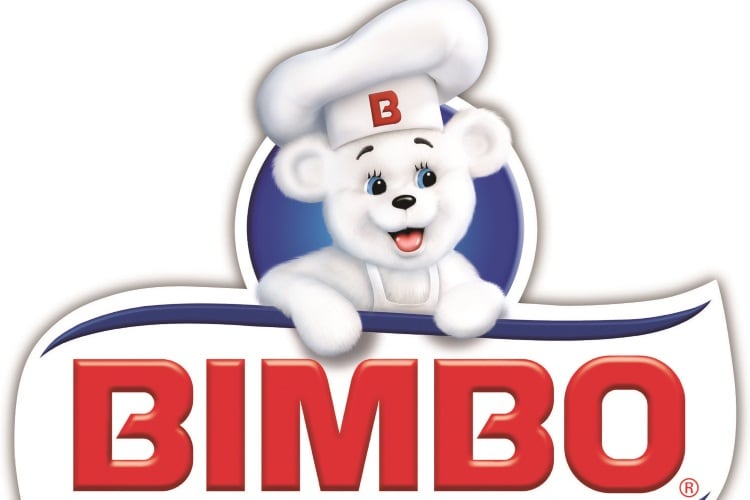The Mexican bakery giant posted net sales of 72,324 million pesos ($3,7bn), a 0.6% flutter on the 72,794 million ($3.8bn) for the same period last year.
However, operating income increased 59.3% to 4,277 million pesos ($224m) from 2,684 million ($140m), and margin expanded 220 basis points, primarily due to lower restructuring expenses.
Operating income of Bimbo Bakeries USA (BBU) in the second quarter was 1,276 million pesos ($66m), compared with a loss of 213 million ($11m) during the second quarter last year, resulting from a voluntary separation program and an organizational restructuring in Canada.
Adjusted EBITDA was 7,707 million pesos ($404m), up 3.3% from 7,461 million ($391m) in 2018.
US sales decrease
Net sales decreased 1.9% for Bimbo’s North American division to 19,503 million pesos ($1.02bn) from 19,769 million ($1.03bn) a year earlier.
Volumes were soft because of ‘the implementation of price increases, portfolio optimization initiatives, continued compression of the private label category, exit of a license agreement in the US and business interruption in a plant in Canada,’ due to an extreme drought across Québec, said the company.
This was partially offset by strong performance of the sweet baked goods and snacks categories in the US. Additionally, the company gained market share in Canada.
“We’ve had fairly significant inflation headwinds, which were actually greater this year than they were last year,” said Fred Penny, president of BBU.
“And we made the decision last year to address the inflation headwinds that we knew were coming. We’ve actually priced, I would say, well ahead of the total category. And as a result, we’ve seen some volume softness, particularly in traditional sliced bread where the price sensitivity is higher than in some other categories where we haven't seen the same level of impact.
“We’re going to make some [price] adjustments where we believe we need to,” he added.
“Having said that, I think it’s important to understand it’s a fairly diversified portfolio we have, and there are complexities in terms of where the elasticity shakes out. We’re in muffins. We’re in bagels. We’re in sliced bread. We’re in premium bread. We’re in buns and rolls. We’re in sweet baked goods with three different brands, and all of them respond differently in terms of the category and our specific brands. So, it’s been a big focus for us in terms of revenue growth management, and it will continue to be. And we'll adjust if we need to and where we need to.”
Flat sales in Mexico
Net sales in Mexico were essentially flat – growing 1.2% to 13,944 million pesos ($731m) from 14,116 million ($740m). Dragging on margins was a weaker consumption of sweet baked goods and snacks, as well as the commercial strategy implemented between subsidiaries of Mexico and the US.
Daniel Servitje, chairman and CEO of Grupo Bimbo told analysts in a conference call that the company’s salted snacks and confectionery businesses in Mexico have historically been operated under the Barcel banner.
For the second consecutive year, Bimbo was honored as the company with the greatest commitment to the use of renewable energies at Mexico’s Commercial and Industrial Energy Congress MIREC 2019.
It was also recognized as one of the five most reputable companies in the country by the Reputation Institute for the best work environment and good corporate social responsibility.
“To create greater focus on these categories and take advantage of opportunities in the marketplace, we have decided to separate the businesses and now make Ricolino a standalone Grupo Bimbo organization. Now Barcel will be focused exclusively on the salted snacks business, facilitating its ability to increase customer reach and look for opportunities to expand in new markets,” he said.
The company also reported good performance from the Bimbo Cero Cero and Oroweat Multigrain brands.
Argentina’s volatile political climate and a challenging competition environment in Brazil took their toll on the company’s net sales for Latin America, resulting in a net sales drop of 3%.
Good growth for EEA
Conversely, sales in the European Economic Area (EEA) in the second quarter rose 5.3%, mainly driven by the acquisition of Mankattan, good performance from Bimbo QSR and a growing popularity of the bagels category in the UK. The company also saw the sweet baked goods category doing well in Spain.
“From the vantage point of midyear, I can tell you that it’s been challenging as we have navigated to a volatile and uncertain environment in several markets like Mexico, Argentina and Brazil,” said Servitje.
“However, sales grew 1.7%, excluding FX effect. An effective focus on cost controls, productivity benefits from past investments and lower restructuring charges led to significant year-over-year growth in operating income and net majority income.”





